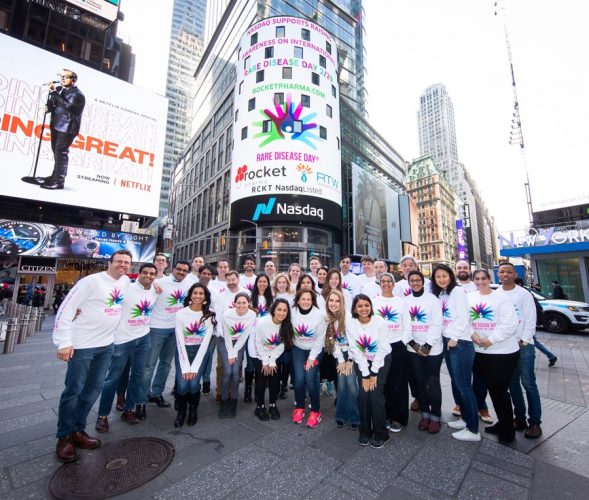RARE DISEASE DAY 2021


Rare Disease Day takes place every year on the last day of February—with February 29th as the rarest date on the calendar—to underscore the nature of rare diseases and what patients and families face.
ROCKET RARE DISEASE MONTH 2021: Expert Panel Series
Abbey Meyers: A Parent’s Quest to Make a Difference in Rare Diseases
February 5, 2021 11 a.m. – 12:30 p.m. EST
Join us for an intimate discussion with Abbey Meyers, catalyst for the Orphan Drug Act of 1983 and National Organization for Rare Disorders (NORD) founder. Abbey’s indelible story as a parent-turned-advocate shows how a parent’s quest to change her child’s life would ultimately improve respect, understanding and care for rare disease patients around the world in the decades since.
Revealing the Power of Genetic Testing
February 12, 2021 11 a.m. – 12:30 p.m. EST
Early detection of rare diseases through genetic testing may lead to the best possible outcomes for patients and those around them. However, making this decision isn’t always easy. Learn the ABCs of genetic testing from patient advocates Seth Rotberg and Ron Gladue, and genetic counselor Amy Jonasson. Topics will include their personal journeys and practical advice for patients and families including types, access, and timing of genetic tests, and benefits of testing.

Beyond ClinicalTrials.gov – The Clinician’s Perspective in a Gene Therapy Study
February 19, 2021 11 a.m. – 12:30 p.m. EST
Gene therapy clinical trials are on the rise and aim to fill of the unmet need for many rare diseases that are void of approved treatment. Deciding to volunteer for a gene therapy trial can be daunting. Join study physicians Claire Booth, Julian Sevilla Navarro and Ami Shah as they share insight on how to navigate this decision by discussing some of the common challenges and considerations for gene therapy clinical trials.
How to Go from Caring for 1 to Caring for a Community
February 26, 2021 11 a.m. – 12:30 p.m. EST
In rare disease, the magnitude of ‘being your own best advocate’ is astronomical. Given that the sheer rarity of some diseases means a Google search turns up a ‘zero’ result, taking the initiative to unearth even the most basic information and resources to get the best possible care can become an obsession. As successful advocates explain, fostering this obsession into something that benefits a patient community can be immensely rewarding. Join our panel to learn how they have built supportive communities and the lessons learned along the way.










